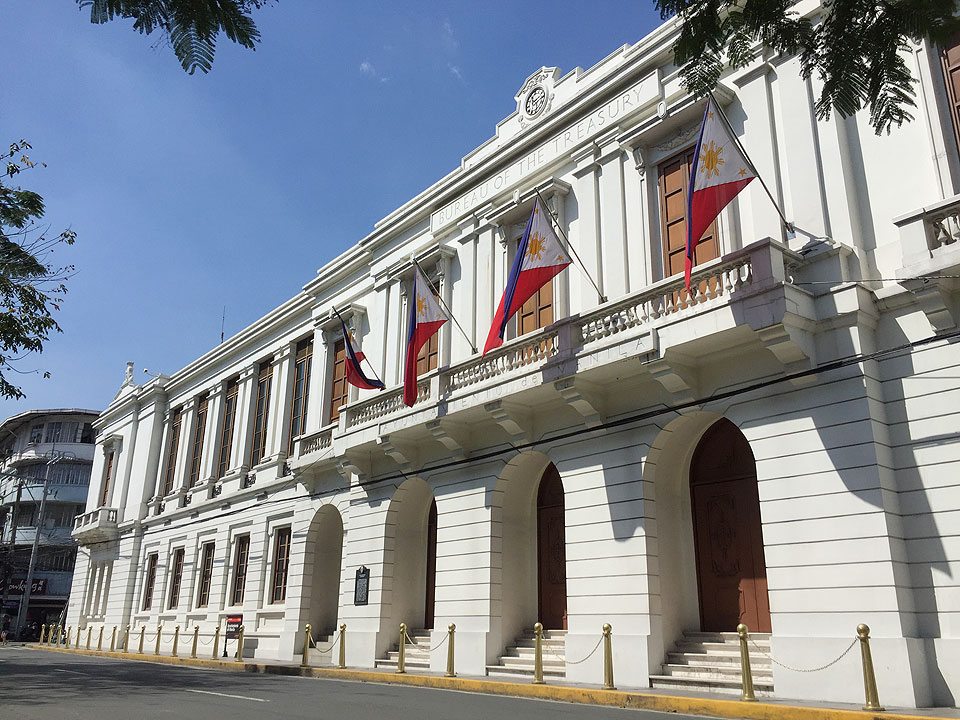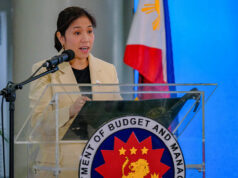Government partially awards T-bills as rates rise due to tightening bets

THE GOVERNMENT partially awarded the Treasury bills (T-bills) it auctioned off on Monday as rates climbed across all tenors on hawkish signals from officials of the Bangko Sentral ng Pilipinas (BSP) and the US Federal Reserve.
The Bureau of the Treasury (BTr) raised just P10 billion from its offer of T-bills on Monday, below the P15-billion program, even as bids reached P22.65 billion.
Broken down, the Treasury did not award any 91-day T-bills as tenders reached only P4.12 billion, below the P5-billion program. Had it been awarded, the average rate of the three-month papers would have risen by 45.10 basis points (bps) to 4.864% from the 4.413% quoted last week.
Meanwhile, the government made a full P5-billion award of the 182-day securities as demand for the tenor reached P9.46 billion. The six-month T-bill was quoted at an average rate of 5.177%, rising by 11.7 bps from 5.06% the previous week, with accepted rates ranging from 5.093% to 5.3%.
The BTr also borrowed P5 billion as planned from the 364-day debt papers as bids reached P9.07 billion. The average rate of the one-year papers climbed by 12.2 bps to 5.577% from the 5.455% fetched for the tenor last week. Accepted yields were from 5.565% to 5.6%.
“Results were mixed in today’s Treasury bill auction as the Auction Committee decided to fully award bids for the 182- and 364-day T-bills while rejecting bids for the 91-day security. The 182- and 364-day T-bills fetched averages of 5.177% and 5.577%, respectively. Meanwhile, the 91-day T-bill rate reached 4.864% had it been awarded,” the BTr said in a statement on Monday.
“The auction was 1.5 times oversubscribed, attracting P22.7 billion in total tenders. With its decision, the committee raised P10 billion of the P15 billion offering,” it added.
A trader said the BTr made a partial award of its T-bill offer as yields climbed, still due to the BSP’s recent rate hike and expectations of more increases to come.
The BSP hiked benchmark interest rates by 50 bps for a second straight meeting on Feb. 16 to tame inflation.
This brought its policy rate to 6%, the highest in nearly 16 years or since May 2007 when it stood at 7.5%.
It has now raised borrowing costs by 400 bps since May 2022.
BSP Governor Felipe M. Medalla last week said they could hike borrowing costs again at their meeting on March 23, adding that a smaller 25-bp move is the “most likely” option amid signs of slower inflation in February.
Meanwhile, Rizal Commercial Banking Corp. Chief Economist Michael L. Ricafort said the partial awarding “may have to do with higher bid yields and lower amount of bids compared to the previous week.”
Mr. Ricafort added that rates rose amid “more hawkish signals recently from Fed officials and markets already pricing in three more Fed rate hikes of at least 25 bps in March, May, and June 2023 [which] could also be matched locally, at the very least.”
Cleveland Fed President J. Loretta Mester, St. Louis Fed President James Bullard, Boston Fed President Susan M. Collins, and Fed Governor Christopher J. Waller last week said more rate hikes would be needed to tame inflation after data released on Friday showed consumer spending in January increased by the most in nearly two years or since March 2021 to 1.8% last month.
The US central bank hiked its fed funds rate by 25 bps in its Jan. 31 to Feb. 1 meeting to a range between 4.5% and 4.75%. This brought cumulative increases since March 2022 to 450 bps.
The Fed’s next policy meeting is on March 21-22.
“The markets are still waiting for the latest local inflation data and yet to see if it already topped out,” Mr. Ricafort added.
Headline inflation hit a 14-year high of 8.7% in January, faster than the 8.1% in December 2022 and 3% a year ago. This was also well above the BSP’s 2-4% target and 6.1% forecast for the year.
On Tuesday, the BTr will offer P25 billion in reissued seven-year Treasury bonds (T-bonds) with a remaining life of six years and two months.
The Treasury wants to raise P200 billion from the domestic market this month, or P75 billion via T-bills and P125 billion via T-bonds.
The government borrows from local and foreign sources to help fund its budget deficit, which is capped at 6.1% of gross domestic product this year. — Aaron Michael C. Sy



